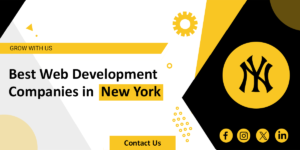As technology advances, the world slowly changes. Businesses are now upgrading their ways to avoid falling into the pit of obsolescence. This revolutionary journey is led by integrating cognitive automation, a powerful combination of advanced analytics and machine learning algorithms that surpass traditional business models. This dynamic convergence, especially concerning AI/ML Workloads, transforms the operations landscape by bringing new avenues of innovation and strategic resilience.
We explore the deep effects of cognitive automation on long-term, sustainable corporate success, revealing its many facets and possible consequences for progressive companies. Cognitive automation moves beyond simple adaptation to become a driver of efficiency and creativity, launching businesses into a new era where strategic choices are based on a deep awareness of the revolutionary potential of machine learning and sophisticated analytics.
Organizations must integrate cognitive automation to succeed in the changing business environment and ensure survival as they navigate this crossroads. This is especially important when facing the problems offered by artificial intelligence avocations.
Table of Contents
Rejuvenating Operational Efficiency
Known for its complex algorithms and capacity for self-learning, cognitive automation is the key to reviving operational effectiveness. By transcending traditional approaches, companies can achieve unmatched accuracy in process optimization.
This radical shift strengthens the fundamental components necessary for long-term growth by accelerating decision-making processes and reducing the possibility of human error.
The Marvel of Predictive Analytics
Businesses must be able to evaluate large datasets efficiently in the current era of plentiful data. By utilizing sophisticated predictive analytics and cognitive automation, businesses may get valuable insights from the complex web of data. This competence enables businesses to create plans that anticipate changes in the market by identifying new trends and analyzing consumer behavior, in addition to meeting present demands.
In the dynamic and always-changing corporate landscape, it becomes imperative to maintain a proactive position of this kind to ensure lasting success.
Optimal Resource Management
Allocating resources strategically is essential to long-term, profitable company expansion. Resource consumption may be carefully examined by utilizing cognitive automation, allowing firms to choose the best allocation techniques.
Businesses may ensure prudent resource allocation, foster a sustainable culture, and strengthen resilience against unforeseen difficulties by identifying redundant procedures and optimizing personnel deployment.
Revolutionary Customer Interaction
Artificial intelligence represents a significant advancement in the foundations of customer service and overall business practices, acknowledged as a crucial element for any reputable company. Companies can carefully evaluate customer feedback and modify their products to suit changing demands by skillfully applying sentiment analysis and natural language processing. This deliberate move in the direction of customer-centric initiatives shows a dedication to comprehending and adjusting to the market’s changing demands.
By employing cognitive automation methods like sentiment analysis and natural language processing, businesses may demonstrate adaptability in a fiercely competitive market and improve their response time to customer feedback. This strategy fosters brand loyalty while highlighting the company’s image as an industry innovator.
Adaptive Decision Framework
Making well-informed judgments within a flexible and adaptive framework is critical in today’s dynamic corporate environment. Businesses profit from artificial intelligence by obtaining faster access to data and making more educated and timely decisions. The combination of data-driven analytics and machine learning algorithms simplifies decision-making processes while providing critical insights for navigating the complex terrain of today’s corporate environment.
Companies prosper in today’s dynamic business environment by strategically utilizing flexibility and artificial intelligence. Combining machine learning and data-driven analytics improves decision-making efficiency while speeding up the overall process.
This strategic relationship enables firms to navigate the complicated terrain of modern commerce more quickly and agilely, building resilience and flexibility in the face of fast change.
Risk Supervision and Conformance to Regulatory Norms
In an era characterized by the increasing complexity of regulatory frameworks, artificial intelligence is a reliable partner in risk management and compliance requirements. By carefully examining large datasets for irregularities and deviations, businesses strengthen their defenses against such attacks.
Moreover, the adaptable quality of cognitive automation guarantees compliance process adherence and helps it evolve in tandem with the constantly shifting regulatory environments, cultivating a resilient and sustainable culture.
Risk Oversight and Conformance to Regulatory Standards
Regarding risk management and regulatory compliance, companies must be alert and flexible to negotiate the complex terrain of unknowns and nuances of compliance. To develop strong methods for resilience and mitigation, proactive risk management entails a thorough analysis of potential threats.
In addition, maintaining compliance with regulations necessitates a thorough comprehension of dynamic frameworks to guarantee that organizational procedures completely comply with applicable laws and industry norms.
In addition to protecting their operations against hazards, companies can establish a reputation for honesty and accountability in the dynamic business world by promoting a culture of ongoing review and compliance.
Conclusion
Cognitive automation is a monument to the enduring spirit of invention, seamlessly woven into the fabric of technological growth. For businesses hoping to achieve sustainable growth, its significant effects on risk mitigation, resource allocation, customer engagement, operational efficiency, predictive analytics, and decision-making herald the beginning of a disruptive era. It is necessary to view cognitive automation as a critical instrument in an organization’s strategic toolbox rather than as a panacea to navigate uncharted territory in the future successfully.
This recognition is based on the knowledge that businesses function in a dynamic environment characterized by constant change and intense rivalry. A notable example of steadfast creativity in the unrelenting advance of technology is cognitive automation. For businesses looking to expand over the long term, its transformative impact on various aspects—such as operational efficiency, risk mitigation, resource allocation, customer interaction, decision-making, faster transactions, and compliance—marks the beginning of a new story.
In a world of constant change and fierce competition, progressive companies are about to understand that incorporating cognitive automation into their strategic framework is not just a magic bullet but a crucial factor in determining their rising success.





















+ There are no comments
Add yours